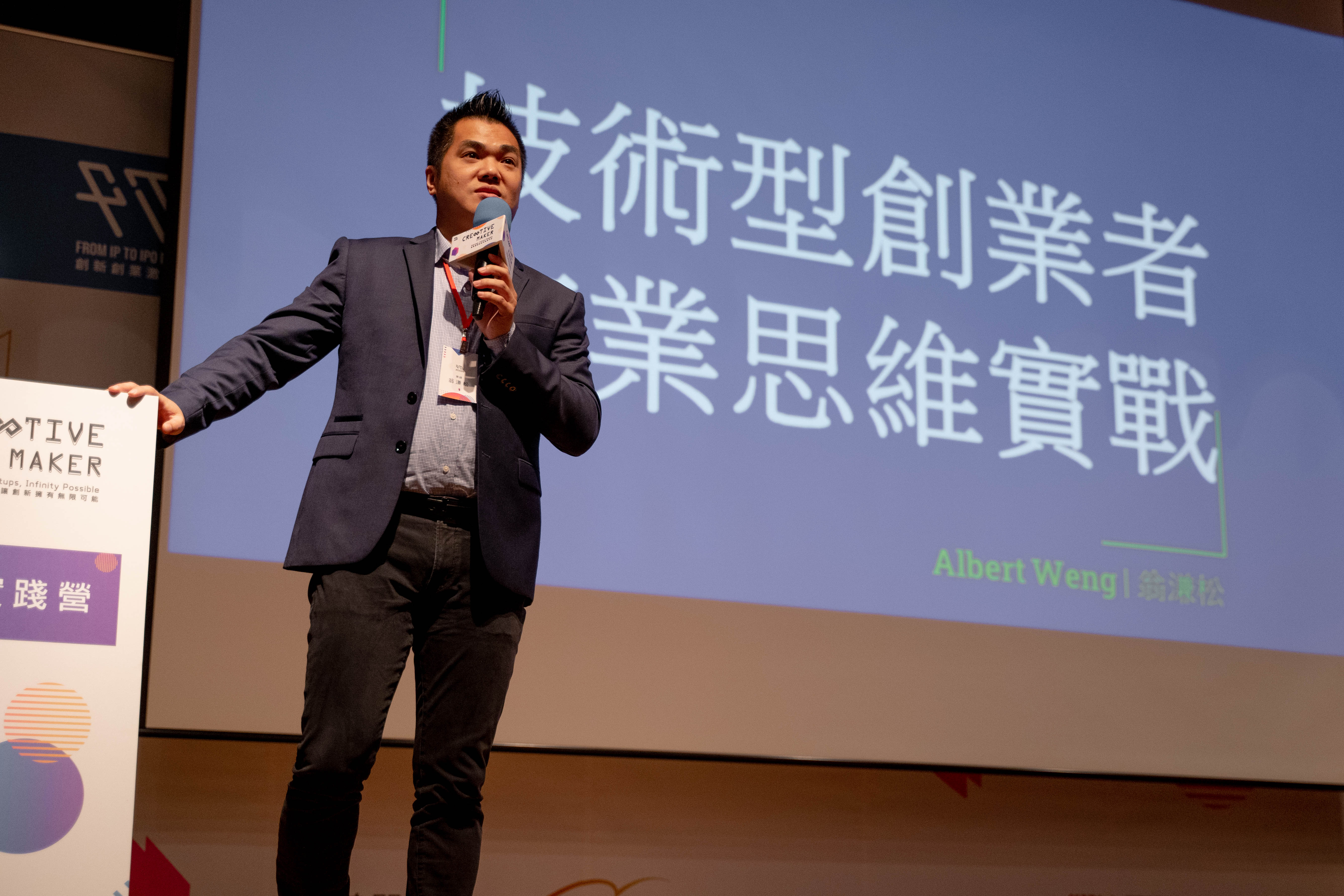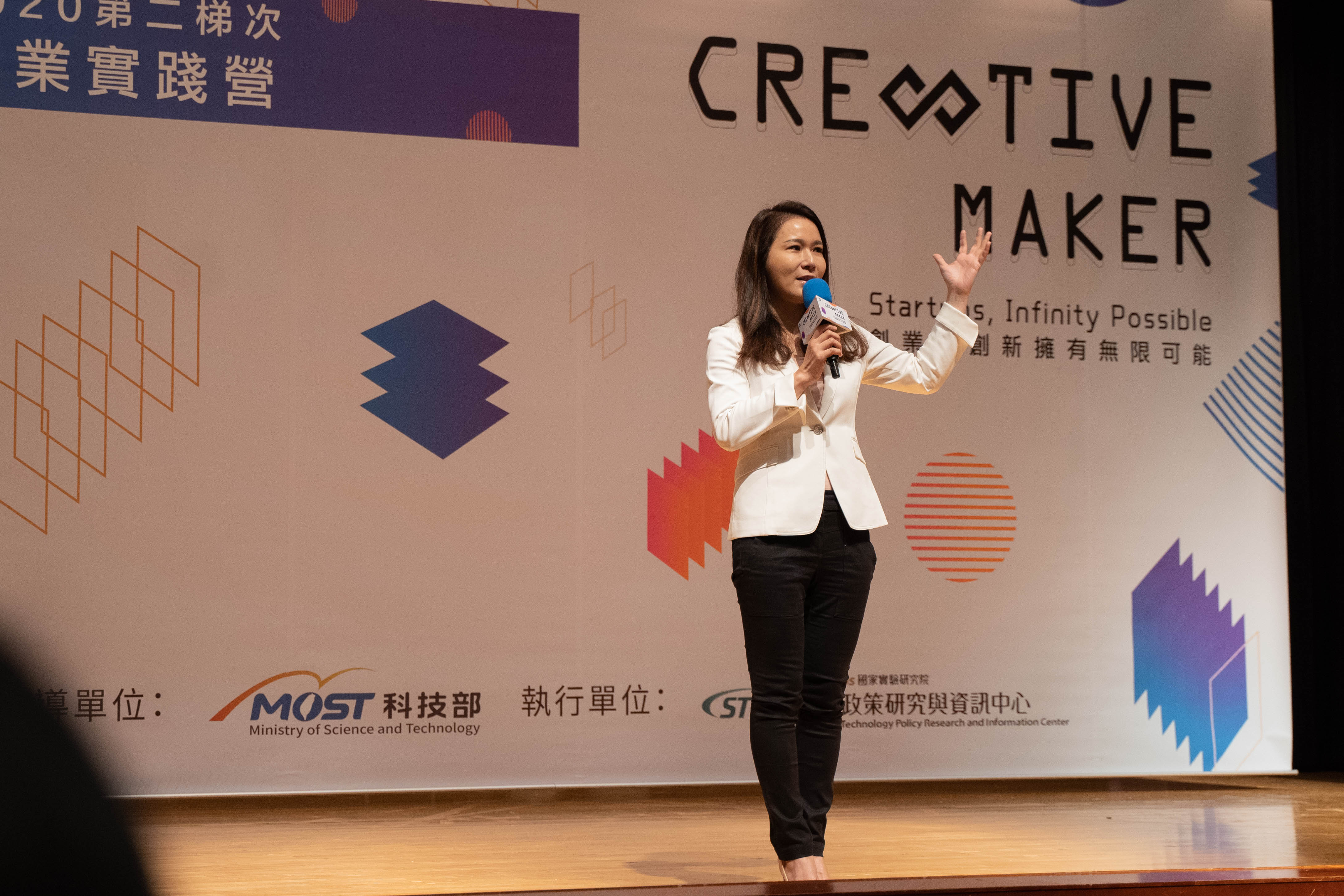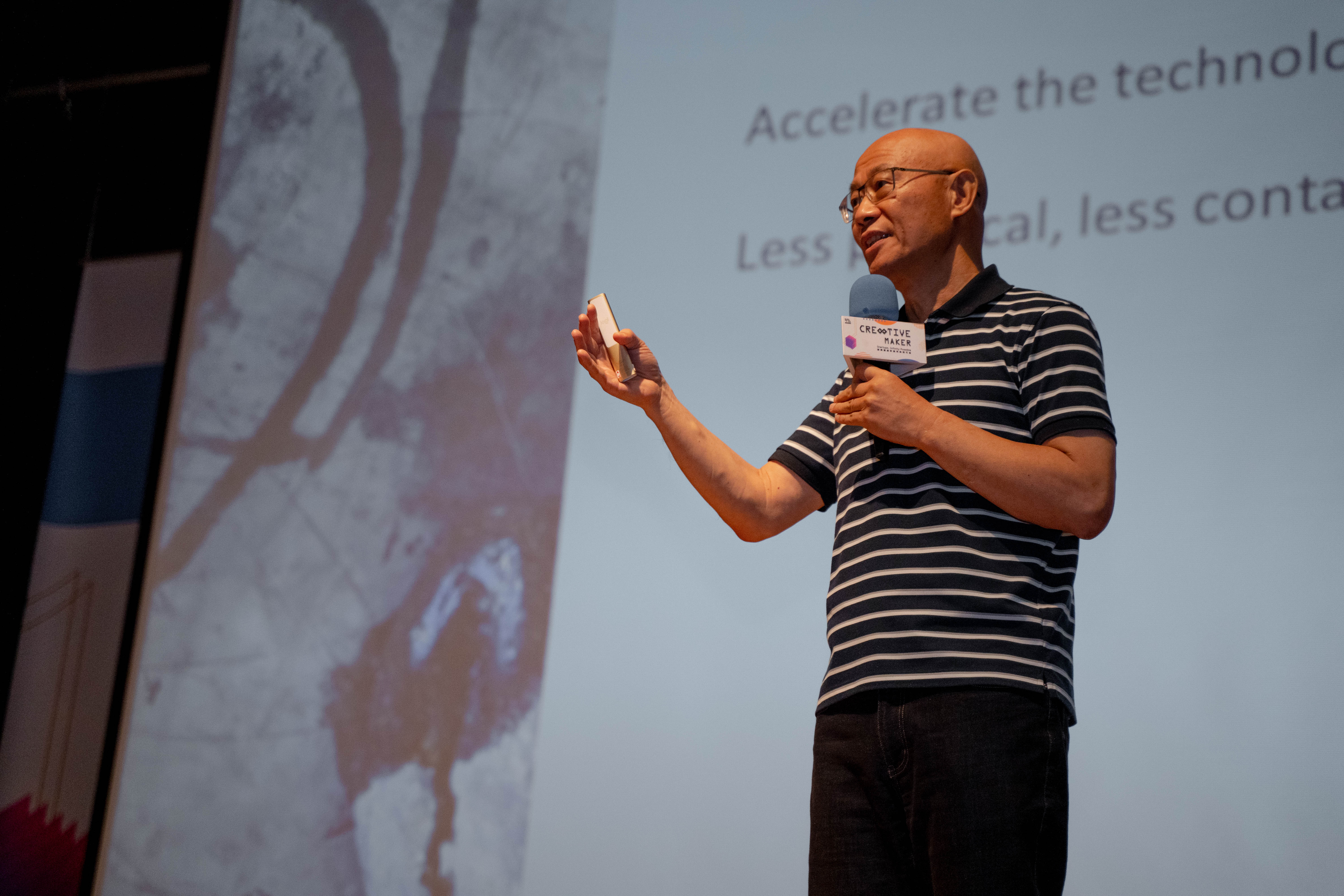|
Minister of Science and Technology Tsung-Tsong Wu describes the process of cultivating innovation as a relay race in which each runner plays an important role. Minister Wu says that close cross-departmental collaboration between the Ministry of Science and Technology (MOST), the Ministry of Economic Affairs (MOEA), and the National Development Council (NDC) is crucial in transforming Taiwan into an international hub of innovation in the coming decade.
The first runner of the innovation relay race is the MOST. The three-day in-depth Entrepreneurship Practice Camp under round two of the From IP to IPO (FITI) Program, which is advised by the MOST and implemented by the Science and Technology Policy and Information Center (STPI) of National Applied Research Labs (NARLabs), kicked off on September 25, 2020 at the Aspire Resort in Longtan. Several startup teams with the potential to develop technologies have been selected in the early stage. However, only 20 top-tier teams from academia and research institutions made it through the selection process for the Entrepreneurship Practice Camp that boosts the startup teams’ entrepreneurial capability. Mentors from home and abroad, international accelerators, and local counseling units from Hsinchu, Central Taiwan, and Southern Taiwan Science Parks were invited to join the camp to assist the startup teams. |
|
|
|
FITI Program General Coordinator Amanda Liu gave welcome remarks in the opening ceremony. |
|
The startup teams from academia and research institutions designed products, solved problems, satisfied customers’ needs with advanced research and development technologies, and constantly adjusted business models for fast growth with passion, perseverance, and resilience. Waiting for the teams was focus discussion on the business model with more than ten mentors from different fields, in-depth training, and team evaluation and selection process. Through all that was provided, startup teams could access bountiful resources for starting a business and further develop a comprehensive mindset, critical thinking, and the ability to start and manage a business through multidimensional training.
International accelerators were invited to the Entrepreneurship Practice Camp to help startup teams view the market from a broader perspective outside of Taiwan and grasp global industrial trends before further accessing international venture capital and markets. After assessing the practicality of technologies, market demand, and the determination to start a business, mentors gave advice to the 20 promising startup teams selected in the second stage. The teams went full steam in the three-day camp to transform themselves into technology startups that continue to grow. |
|
|
|
Chih-Kai (C.K.) Cheng, the Co-founder and General Partner of Acorn Pacific Ventures, gave speech in the opening ceremony. |
|
The FITI Program was developed eight years ago by the STPI and advised by the MOST to encourage students in Taiwan to innovate. The program leverages the strength of accelerators to create an environment where startup teams from academia and research institutions can swiftly test the practicality and impact of commercialization of different technologies in response to market demand and technological changes. NARLabs Vice President and STPI Director General Bou-Wen Lin expressed his gratitude to the mentors for offering bountiful resources to and sharing experience with the early-stage startup teams, saying that with the assistance of mentors, the startup teams grow steadily, overall entrepreneurial capability increases in Taiwan, and Taiwan becomes more competitive on the world stage. Director General Lin also expects future development of a mechanism that transforms research results into industry performance so that talents from academia and research institutions can be cultivated to combine research with practice.
At the beginning of the training, Stan Shih, FITI Program honorary director of academic affairs and Chairman of StanShih Foundation, encouraged the startup teams to tackle difficulties and breakthrough bottlenecks, respond to market demand, join efforts to make Taiwan’s products and technologies more competitive, and create value for the global community. Mr. Shih also stressed the importance of creating indirect, intangible, and sustainable value and of striking a balance between different interests while starting a business. In addition, he encouraged collaboration between the two fields of medicine and information & communication technology for future contributions to epidemic prevention and smart medicine. According to Stan Shih’s “new smiling curve” theory, new business models should be built by sharing existing resources and optimizing the customer experience. Furthermore, having a better grasp of the seven trends of the happy future life of ethnic Chinese along the process of research and development, service provision, and product creation not only helps create value but gradually transforms Taiwan into a Si-nnovation Island and the birthplace of a New Eastern Si-vilization. |
 |
|
Albert Weng, the Special Assistant to the Chairman in Hitron Technologies, gave speech in the opening ceremony. |
|
With the goals of cultivating young tech entrepreneurs and providing comprehensive entrepreneurship training, the FITI Program encourages startup teams from academia and research institutions to persevere with the development of cutting-edge technologies and products. Throughout the training, go-to-market strategies of the startup teams were enhanced, and outstanding teams were selected to set up booths in Taiwan Tech Arena(TTA), a physical entrepreneurial environment in Taipei Arena, for innovation acceleration. On top of that, future development plans for the startup teams were drawn up with the assistance of related organizations to support innovation with both research and practice. To date, the program has cultivated 3229 young entrepreneurs, established 288 companies, and solicited over 4.49 billion Taiwan dollars of startup funding. The abovementioned program results are expected to be the cornerstones of a vibrant domestic market and digital transformation of industries in Taiwan.
In the MOST relay race of research result commercialization and cultivation of innovation and entrepreneurship, the FITI Program plays the first runner. The Taiwan Reputed University Startups to Taiwan Unicorns Program, which integrates the Value Creation Program and the Germination Program, plays the second runner and helps turn research into startups. The third runner of the relay, TTA, is in charge of connecting Taiwan’s startups to global markets. In addition, the MOST also combines resources of different governmental departments, such as the NDC and the MOEA, and allocates resources to startup teams in phases, hoping to increase startup success rate. With early-stage cultivation and incubation, later-stage international accelerator network, and cross-departmental resource integration, it is expected that Taiwan’s startups become more competitive to tap into global markets, seize business opportunities and funding, and connect Taiwan to the world. |
Related
- News 2019-2 Finale and Award Ceremony of From IP to IPO (FITI) Program
- News Bolstering Innovation Through Online Lean Training
- News Final Match and Awarding Ceremony of 2020-2 FITI Program
- News 2021-1 FITI Final Competition and Award Ceremony
- News MOST "FITI x CIOT" 2022-1 Final Competition and Award Ceremony
- News From IP to IPO (FITI) Program 2023 First-Round Finalists Announced
- News 2024 From IP to IPO (FITI) Program First-Batch Finalists Announced


